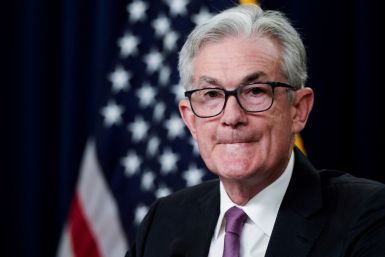The dollar recoiled from recent peaks in Asia on Friday as a hawkish rate hike from the European Central Bank lifted the euro and investors looked to U.S.
Oil prices rose on Friday as investors considered Russia's threat to halt oil and gas exports to some buyers, but crude was set for a second straight weekly decline as central banks' aggressive rate hikes and China's COVID-19 curbs weighed on demand.
Asian shares crept higher as the dollar eased, with markets turning calmer after a record interest rate hike from the European Central Bank and hawkish comments from the U.S.
Front-loading interest rate hikes is a key strategy for the Bank of Canada as it battles the fastest rising prices in nearly four decades, a senior official said on Thursday, warning there was an ongoing risk of high inflation becoming entrenched.
European shares rose on Thursday led by gains in bank stocks after the European Central Bank delivered its biggest-ever interest rate hike to combat inflation, which is running at a half-century high and approaching double-digits.
The Federal Reserve is "strongly committed" to fighting inflation, but there remains hope it can be done without the "very high social costs" involved in prior campaigns to control surging prices, Fed Chair Jerome Powell said on Thursday.
Companies with the highest credit ratings in the world are engaged in a now-or-never U.S.
Germany's economy ministry is considering a raft of measures to make business with China less attractive as it seeks to reduce its dependency on Asia's economic superpower, two people familiar with the matter told Reuters.
Oil prices edged higher on Thursday, but remained near eight-month lows, as China's extension of COVID-19 lockdown measures exacerbated concerns a slowdown in global economic activity would hit fuel demand.
U.S. stock index futures slipped on Thursday after a broad market rebound in the previous session, with investors looking ahead to Federal Reserve Chair Jerome Powell's speech for clues on monetary policy tightening plans.
Sterling's slide against the dollar to a rate last seen in 1985 has sparked talk of a dramatic spiral downwards that ends in a collapse in confidence in British assets and a balance of payments crisis.
China debt markets lost $7.7 billion in August in a seventh straight month of portfolio outflows, data from the Institute of International Finance (IIF) showed, amid market jitters over the downturn gripping the world's second-largest economy.
The Bank of England said on Thursday it would move to a "more British style of regulation" for the country's huge financial services industry as it seeks to take advantage of Brexit.
Byzantine, politicised or just plain stupid, European Union fiscal rules have been called many names and changed many times.
Asian stocks rode a global rally on Thursday, making broad gains as oil prices steadied at lower levels not seen since before Russia's invasion of Ukraine, though China was an exception as weak data signalled more pressure on the COVID-hit economy.
Economic ministers from the United States and 13 Indo-Pacific countries launch negotiations on Thursday on Washington's first major pan-Asian trade engagement effort in nearly a decade, but this time any deal won't cut tariffs.
Wholesale gasoline prices are expected to keep falling in coming months as U.S.
Australia's top central banker opened the door on Thursday to slowing the bank's policy tightening after five rate increases in as many months, sparking a rally in bonds as markets scaled back bets on further aggressive moves.
Bearish bets on several Asian currencies hit a record high, driven by a slump in the Chinese yuan and a towering dollar as investors brace for more Federal Reserve rate hikes, a Reuters Poll found.
The dollar resumed its rise in Asia on Thursday after falling back from a two-decade high overnight, as investors pondered the path of global monetary policy ahead of a European Central Bank rate decision and comments from Federal Reserve Chair Jerome Powell later in the day.
Japan's economy grew more than initially reported in the second quarter, as the lifting of local COVID-19 restrictions boosted consumer and business spending.
With rising inflation rates, many choose to move to cheaper U.S. cities. Here are some places to consider for their lowest cost of living.
The European Central Bank will raise interest rates again on Thursday to fight runaway inflation and, with a big move and a record one under consideration, the only question is by how much.
The U.S. Federal Reserve will maintain tight monetary policy "for as long as it takes to get inflation down" Fed Vice Chair Lael Brainard said Wednesday in the central bank's latest affirmation that fighting price pressures is its chief priority.
In a country where the Big Six banks control 80% mortgage market share, Canada's smaller lenders are making some rare headway after the Bank of Canada's sudden and sharp interest rate increases this year raised the bar to qualify for home loans.
Poland's central bank raised its main interest by 25 basis points in September, the lowest rise in the current rate hike cycle so far, as it expects lower growth and continued inflationary pressure, it said on Wednesday.
A deal to cap dividends at Nornickel, the world's top palladium and refined nickel producer, will lapse at the end of this year as its co-owners avoid renewing a row which could anger the Kremlin, three sources familiar with the matter told Reuters.
European countries have increased gas inventories by a record volume this year, but they will still need to reduce consumption sharply this winter to protect themselves from a possible disruption in supplies from Russia.
The trial in Ambac Financial Group Inc's $2.7 billion case against Bank of America is expected to begin in New York state court on Wednesday, 12 years after the bond insurer sued over troubled mortgage-backed securities issued before the 2008 financial crisis.Starting in 2004, Ambac insured securities backed by 375,000 home loans from the bank's Countrywide unit.
The U.S. Federal Reserve's new regulatory chief Michael Barr will on Wednesday outline his plan for overseeing Wall Street banks and reviewing regulations, in his first public remarks since joining the central bank in July.



















































